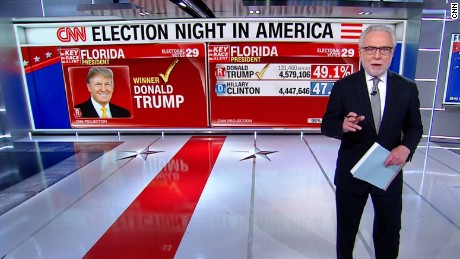

About Last Night’s Special Elections

About Last Night’s Special Elections
by D.J. McGuire
“The people have spoken…the bastards.” – Richard Tuck, defeated candidate for California State Senate, 1966
Democrats will instinctively feel forlorn about their defeat in Georgia’s Congressional special election. They shouldn’t, although there are lessons to be learned.
The first thing to remember is that one special election all by itself is not much of a predictor for upcoming midterm elections. During the last cycle in which the Democrats ended up winning the House of Representatives from Republicans (2005-6), the GOP held all of its seats at risk in special elections.
Secondly, we should note there were actually two special elections between Democrats and Republicans last night. South Carolina’s Fifth District was largely under the radar…until Democratic nominee Archie Parnell had a one-point lead with 50% of the vote counted. Parnell also lost, but he came closer than his Georgia counterpart (John Ossoff) – and in a district Donald Trump won by nearly 20 points. Ironically, Georgia 6 – which was supposed to epitomize Democratic recovery – may end up burying the lead (the South Carolina surge).
That said, Democrats certainly should do more than just look at the heavy swing and call it a “moral victory.” There are lessons to be learned here.
First of all, Georgia Six was not a midterm-type election. Turnout for the runoff was actually higher than in 2014, putting this closer to a presidential-election atmosphere (along with the nationalization of the race itself). That gave Republicans more of an incentive to turn out. It also revealed what should be a truism but has largely been ignored by Democrats and MSM: higher turnout in midterm elections helps the party in power, not the Democrats at all times. As 2017 and 2018 approach, Democrats need to focus on getting their voters to the polls without accidentally encouraging Republican voters to do the same. I would argue that South Carolina was much more akin to a midterm election, and if the swing to the Democrats in that district were repeated nationwide, 2018 would be a great year for them. But that’s no guarantee on 2020.
Second, given that GA-6 looked more like a presidential vote, it is telling that the Democrats did not appear to make any headway among Gary Johnson voters. Jill Stein wasn’t on the ballot in Georgia, meaning the 5% in GA-6 who voted for neither Trump nor Clinton went Johnson’s way. Clinton won 47% in GA-6, the Democrats in total won 48% in the first round of the special election, and Ossoff did no better than that last night. By and large, this means Johnson voters saw no reason to vote for a Democrat, and thus, they didn’t.
This reveals the more serious flaw in Democratic strategy: they have yet to expand their coalition, in part because they’re looking in the wrong place. In their desperate attempt to win over Jill Stein voters (half of whom, let’s remember, still voted for her over Barack Obama in 2012) and/or get non-voters to the polls (which, while good for democracy, may not be good enough for the Democrats, see above on turnout), they still seem to be ignoring Johnson voters – who were over three times the number of Stein voters and held the balance not just in the Rust Belt three but in Florida and in Arizona as well.
Again, we should look to 2005-6. Democrats in that era saw that parts of the Republican coalition (social conservatives and anti-war “paleocons” in particular) were feeling slighted by Bush the Younger, who spent much of 2005 defending the Iraq War and pushing for partial privatization of Social Security. As a result, Democrats looked to candidates like Jim Webb and Bob Casey, Jr. – and stunned everyone (including themselves) by flipping not just the House but also the Senate.
This time, social conservatives are more comfortable with the GOP, but economic conservatives aren’t. For most of us, Obamacare’s “Repeal and Replace” looks a lot more like “Rinse and Repeat.” Tax Reform, assuming it comes at all, would come with a horrifically protectionist Border Adjustment Tax. Entitlement reform is a dead letter. Supporting freer trade is now heresy in the Trump-led GOP.
Democrats have opportunities on all of these issues. Market-friendly amendments to Obamacare, tax reform that swaps out the BAT for a carbon tax, and a robust defense of free trade could win over Johnson voters and disgruntled Republicans without riling the Democratic base.
Indeed, one could argue that Parnell – a former banker – had a better persona to attract some of those voters than Ossoff (a former Capitol Hill staffer). Or, if the Democrats don’t want to run a bunch of bankers (and, truth be told, they shouldn’t), they can part ways with some of their corporatist positions – which could win over economic conservatives and energize their own base. The first and best example would be the “Bank of Boeing” (a.k.a., the Export-Import Bank).
In short, the Democrats still look primed for gains in 2018, but they haven’t yet done what they need to defeat Trump in 2020. If they want to change that, they need new voters – and they need to look for them in the right places.
D.J. McGuire is the conservative Democrat on More Perfect Union podcast – and sometimes feels like he is the lone conservative Democrat in the country.






